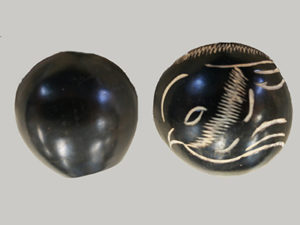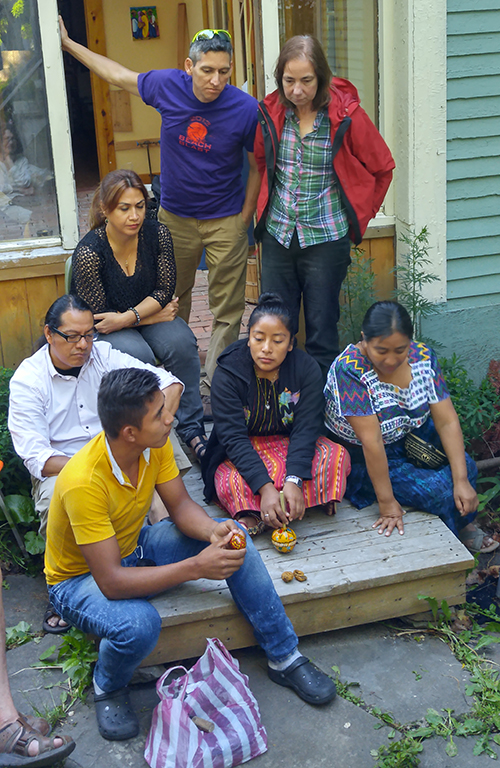Seeds of Truth: The Value of Traditional Crafts

I have the privilege of being one of the participants of the KAIROS Guatemala Youth Exchange, and it has been an amazing experience so far. I am a settler living in unceded Mi’kmaq territory under the Peace and Friendship treaties in Charlottetown, PEI. Meeting all the Indigenous youth, both from Turtle Island, and from Guatemala, is such an honour. I feel it is an immense privilege as well as a responsibility to be welcomed into this group, and to listen to everyone’s stories of loss and resilience and resistance. After meeting everyone in Ottawa, I deeply felt the courage that everyone has in their daily lives, resisting the continuous effects of colonization and genocide. The KAIROS Blanket Exercise (KBE) is a concrete education tool that helps us connect and understand our collective histories, and I am excited about the opportunities that could come from creating a Guatemalan script.
Since I live in Charlottetown, I also got to attend the Atlantic Tour with Lillian Bolvito, Andrés Colocho Chachal, and Sandra Lopez. During their presentation in Charlottetown Andreas was generous enough to show us how he carves traditional morro. He shared a bit about the elaborate 18-step process to make these crafts, and talked about learning the techniques from his Grandmother and Aunts starting at age 8. He told us that only a few families in his town participate in making this traditional craft now and that certain time-consuming steps, such as the creation of natural red dye, are being replaced by more efficient alternatives like red oil paint.
Photo: Andres holding morro painted red and Lilian holding a maraca painted yellow.
Watch Andrés Colocho Chachal as he demonstrates morro, the craft that is traditional to his hometown of Rabinal in Guatemala. It involves carving the dried, polished fruit of the morro tree. In the second half of the video Andrés gives a bit of an explanation. Note the larger bowl being passed around in the background. These crafts are used as kitchen utensils and drinking vessels, as well as in decorative ways.
The next day, while I was planting my tomato seedlings in my community garden plot, I was thinking about how things do or do not get valued in our world today. Our values are deeply engrained in our traditions and in our knowledge of traditional skills. Yet under colonialism that knowledge is devalued in favour of efficiency. This made me reflect on the values that I have, and the importance I place on honoring those values. Under a colonialist world view investing time in growing tomatoes is not efficient. If I were to pay myself for every hour spent gardening, each tomato would probably cost me twenty dollars, a terrible value for my money, and for my time. But if I look at it with everything in mind: my enjoyment in the process, the value of fertile soil, cutting out greenhouses gases from importing food, the relationships with friends and community that are strengthened through tomato canning parties, the flowers for pollinators to enjoy, and the immeasurable value of eating something I have a real relationship with—then growing tomatoes is obviously of great benefit.
It is our work, especially as immigrants and settlers on this land, to decolonize our worldviews. This means that we need to educate ourselves on what it means to be Treaty people, to learn the truth of our histories, and to actively work to right the wrongs of our ancestors and the wrongs that are still being committed today. The work of decolonizing extends to all aspects of our lives: to how we grow tomatoes or choose to value and support traditional craft-makers. It is about how we assign worth and significance to all actions that benefit the whole.
The KBE is one of the tools that I have found particularly effective as a catalyst to promote reflection on colonialism and plant that first seed of connecting us with the truth. But it requires a huge investment of care and persistence if we want to see any fruits from those seeds, and if we want to see a world where the lives, cultures, and values of Indigenous peoples are prioritized.
Hannah Gehrels is a settler youth living in Charlottetown and a participant in the Seeds of Truth KAIROS Blanket Exercise Youth Exchange with Guatemala.

